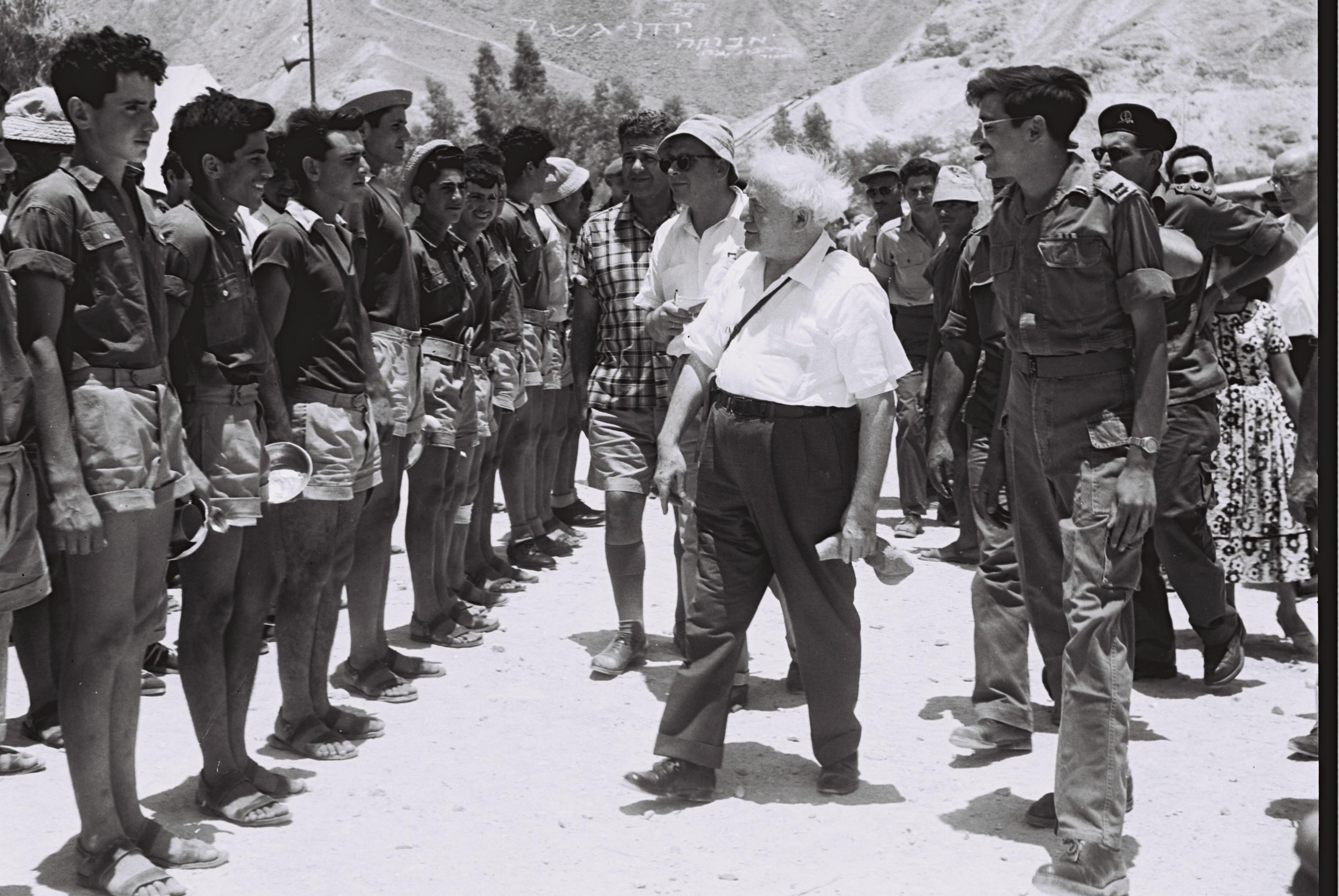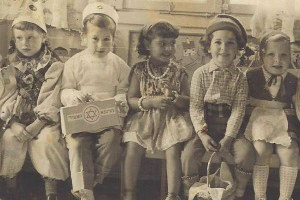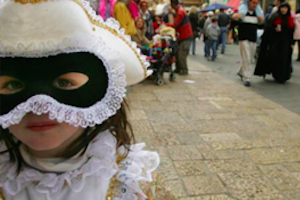Israel is Our Homeland, There is No Other
By Gideon D. Sylvester

Copyright © David Ben Gurion visiting a Gadna base in Be'er Ora (1957).
David Ben Gurion was one of the greatest leaders of the Zionist movement. His aliya from Poland was tough. It was followed by years of disease, famine and food shortages. When he went to the doctor to be treated for Malaria, he was promptly informed that he also suffered from malnutrition. Yet, despite the agonies, Ben Gurion remained a staunch and uncompromising advocate of aliya.
In February 1909, he wrote to his father; “Settling the land – that is the only real Zionism; the rest is just self-delusion, idle chatter and time wasting”. His words were harsh. There are many Jews who work with dedication to support the Jewish State, but are unable to uproot themselves and make aliya. Everyone must be free to choose where they want to live, I respect that. But nothing can turn diaspora life into a Jewish ideal.
It is simply not true to suggest that Jewish tradition equates life in the Diaspora with a life lived in Israel. Yes, Jews have lived in the diaspora for centuries, but this was always considered a life in exile. Even in the greatest diaspora communities, Jews built their synagogues to face Jerusalem and directed their prayers towards the holy city. Three times each day, they beseeched God for restoration to our land and at every Passover Seder they sang “Next Year in Jerusalem”.
Purim is the festival of the Diaspora. It marks a time when Jews lived fragile lives in a foreign land. Forever struggling to maintain their Jewish lives and ingratiate themselves with their peers; never quite succeeding.
Mordechai and Esther were great Jewish heroes who saved us from genocide, but living in the diaspora, they were forever swimming against the tide. There is little that is glorious about Mordechai’s “broad influence across the global politics”. On the contrary, even after King Ahashverosh recognized the evil of Haman and the folly of his anti-Semitism, the Jewish community still had to beg for the right to self-defense and standalone against the anti-Semites. Mordechai may have dedicated himself to ambassadorial work; fighting for Jewish rights amongst a murderous, hostile population, but all this came at the expense of his own spiritual pursuits and for this he was criticized by the rabbis.
Just a few weeks after Purim, we celebrate Yom Ha’atzmaut marking the establishment of a country where we see our children transformed into proud Israelis, speaking flawless Hebrew, following a Jewish calendar and building a Jewish vision secure in the knowledge that they will be the ones to defend their people and their homeland.
Read the rest or the article at Times of Israel.





